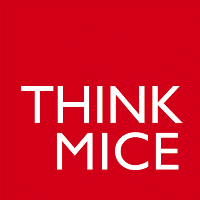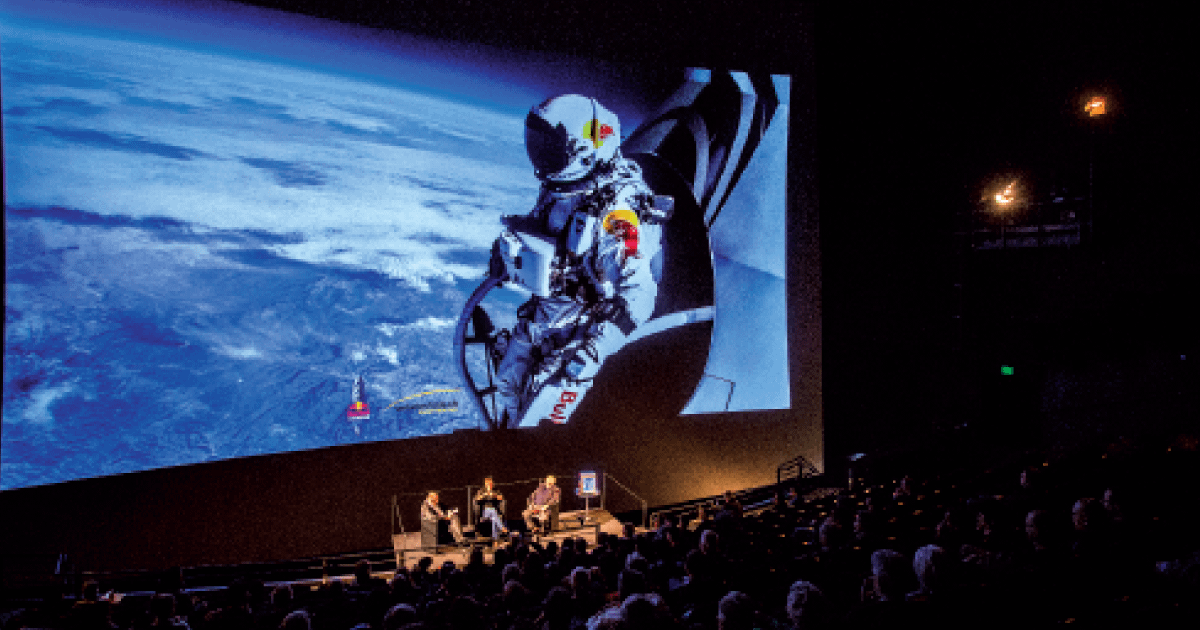
This article was originally published by THINK MICE.
We are living in a world of information overload, bombarded with marketing mes-sages, somewhere between real life and vir-tual reality. Advertisements in mass media are losing their effectiveness, as tablets and smartphones are taking over the role of our AdBlock-enabled main devices. An aggressive form of advertisement, based on a one-si-ded model of communication, no longer impacts consumers of the current century. How thus brands win the trust and commitment of consumers today? Direct and unforgettable offline experiences, so-called engagement marketing, are becoming the main incentive.
Tailor-made Experiences
According to The 2017 Freeman Global Brand Experience Study, a report of one of key brand experience agencies, brand experience encompasses presentations of new pro-ducts, hybrid events (a mix of offline and online content – Ed.), experiences connected with virtual and augmented reality, as well as temporary events of the pop-up kind.
Entrepreneurs today are asked about the authenticity of a brand and the value it represents.Their main component involves the construction of a deliberate and long-term relationship with customers and engaging the latter into participating in the brand’s growth. Modern-day consumers, and young generation in particular, rank the option of having an exciting experience higher than material goods. Entrepreneurs today are asked about the authenticity of a brand and the value it represents. Grzegorz Twaróg, Senior Event Manager with Horeca Group, explains that “When a consumer experiences activities created by a brand, he or she establishes a strong emotional relationship with it.
This is common knowledge today that enables us to increasingly confidently attract the atten-tion of potential customers. On the other hand, the experience of a brand producing sports clothes is entirely different from the experience of innovation or safety offered by a trusted bank. This is why our work on each project is distinguished by the tailor-made and efficiency-first approach”. One of the agency’s projects, matching the trend of per-fectly-fitted engagement marketing, Reebok Fit Shop was awarded at Eventex 2018 in the category of Best Experiential Event.
On The Edge of Good Taste and Risk
Red Bull is considered the unquestionable leader of the engagement marketing sector, for more than twenty years organising and supporting hundreds of events standing out due to an innovative and non-conformist character - from the breakthrough jump of skydiver Felix Baumgartner from a helium balloon in the stratosphere through the Red Bull Air Race World Championship in Gdynia to Neymar Jr's Five football tournament staged in more than ten Polish cities. “The organisation of all types of sports and cultural events is among the key ingredients of our brand’s marketing DNA.Moreover, Red Bull supports initiatives that it does not organise, but which are signifi-cant for a given crowd, e.g. Winter Sports Festival or the Spring Break music festival”, explains Olga Naparty-Małysz, Head of Red Bull Media Network. Red Bull surprises recipients by treading a fine line between risk and good taste. The campaign featuring Polish singer Dawid Podsiadło sitting with a kitten in the unique scenery of a bathtub and encouraging viewers to play a smartphone game can trigger both a sense of wonder and embarrassment.
But it is also precisely the sort of daring and original message that draws the brand’s enthusiasts all over the world. “A well-matched strategy concerning production, communication and distribution makes it possible to reach reci-pients, offering what a given community or field needs most and simultaneously surpri-sing them with a concept, communication, setting, quality and a sense of closeness”, adds Olga Naparty-Małysz.
Virtual Experience of a Brand
A direct and offline experience of brand generates attractive content that marketing professionals can share with consumers via live streaming or social media. However, the Red Bull brand proves that event marketing does not constitute the only effective brand experience tool.The discussed brand achieved its strong position thanks to content marketing operations conducted by means of diverse mass media available at the Red Bull Media House multi-platform media company. Content marketing consists of creating valuable messages that are matched to a defined target group and simultaneously are a part of a brand’s communication strategy. Modern technology is another tool intended to boost the engagement of consumers.
The increasingly popular augmented and virtual reality makes it possible to provide a product experience when the consumer stops being merely a recipient and instead becomes a protagonist of the story being told. Bartosz Bieszyński, Managing Director with Walk Events, explains that “Global brands such as Dentsu, Havas or Jack Mor-ton create separate, mysteriously named ‘X’ units of their companies to combine event marketing with technology and media. The merging of these two worlds is where event marketing should seek advantage over other forms of communication, even influencers who seem to be popping up everywhere”.
Effectiveness Confirmed in Practice
Authors of the The 2017 Freeman Global Brand Experience Study report heralding the emergence of a new era in the history of marketing also confirm the effectiveness of brand experience, According to data discussed by the document, in the next three years more than half of all surveyed Chief Marketing Offices (CMOs) will spend from 20% to even 50% of their budget on engagement marketing.While focused on Asia, the US and Western Europe, the research results are not surprising for Polish professionals. “According to the Jack Morton Experience Brand Index 2018 report by one of the world’s largest agencies operating in the category in question, brands boost their Net Promoter Score (NPS) by 200% and their customer loyalty by 25% when applying not only traditional marketing tools”, explains Bartosz Bieszyński.
In Poland, brand experience is becoming an increasingly popular trend and, consequently, a key method of differentiating a given brand from the competition. Why then are customers resistant to the unavoidable changes? The issue of available funds invariably continues to be highly problematic. “Let us be honest - event marketing is among the most expensive communication tools, particularly when converted into the cost of reaching one recipient.
Recently, at a meeting with a consumer I was informed that the 800,000 PLN required for producing an event would cover the costs of developing a digital campa-ign whose scope would encompass half of Europe. This is true, but will half of all Old Continent residents even notice our banner among thousand similar ones present in so-cial media?”, wonders Bartosz Bieszyński.
Wanting Something More Despite Success
Unlimited budget is not always decisive about the success of a given event. It is even more important to thoroughly get to know the consumer and create an unconventional activity that would match the needs of your target group. A good example is provided by the effectiveness of the promotional campaign of Tchibo Black-N-White, which came as a positive surprise even for the authors of the ambient zone at Open’er Festival 2018.Using high-tech solutions, Horeca Group’s event managers created selfieccino, a cappuccino with customers’ self-portraits reproduced on the froth. Organisers claim that the campaign reached 1.37 million recipients and its Cost per Thousand (CPM) did not exceed 3 Euro. In addition, a brand’s presence at major music festivals is already a popular tool used for building long-lasting relationships with consumers. Despite many successful campaigns based on engagement marketing, meeting planners continue to feel that there is something missing from their cooperation with customers.
Grzegorz Twaróg believes that “In Poland there is still not enough courage and open dialogue with an agency, which would make it possible to properly start cooperation already at the stage of creating a marketing strategy. Customers usually come to us with strictly defined expectations and there is no space to enrich these concepts with strategic operations. After all, we can create much more effective experiences by combining storytelling, design and event technologies with the functionalities available for free from social media and the enormous potential of cooperation with influencers”.
Engagement marketing remains one of the most powerful marketing strategies aimed at winning the hearts of consumers and main-taining the longesat possible partnership with them. James Morgan, founder of Event Tech Lab, sums up that “We ought to strive towards combining communication activi-ties (before, during and after an event) with ambient operations improving a product’s value. In this way, meeting organisers can expect customer satisfaction, while entrepre-neurs should generate an adequate return on investment”.
Read more from THINK MICE at https://thinkmice.pl/english.



